Publications
Articles, publications, books, tools and multimedia features from the U.S. Institute of Peace provide the latest news, analysis, research findings, practitioner guides and reports, all related to the conflict zones and issues that are at the center of the Institute’s work to prevent and reduce violent conflict.
Question And Answer
Why Counterterrorism in Afghanistan and Pakistan Still Matters
Question And Answer
What Does the Xi-Ma Meeting Mean for Cross-Strait Relations?
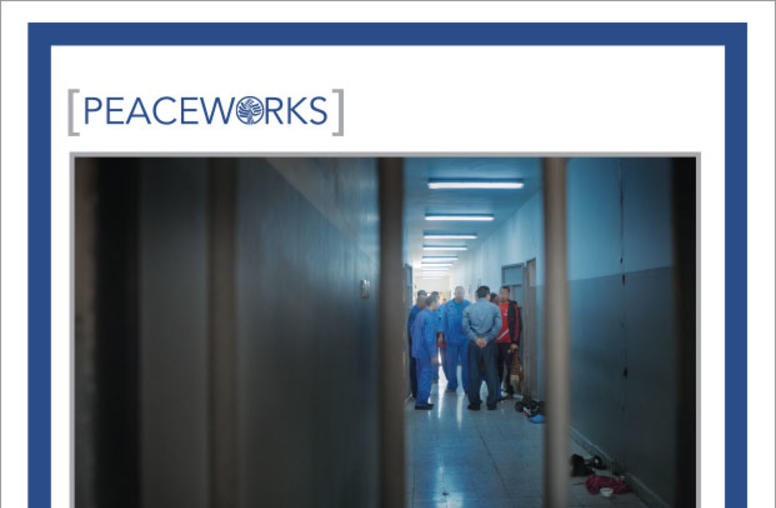
Prisons and Detention in Libya (Arabic)
التقرير الماثل هو عصارة استبيانين أُجْرِيا في ليبيا خلال عامي 2014 و2016. والغاية منه سَبْرُ أغوار القطاع الديني في ليبيا ورصد تأثيره في الحكم والمجتمع. وقد استندت عملية استخلاص نتائج هذا التقرير إلى
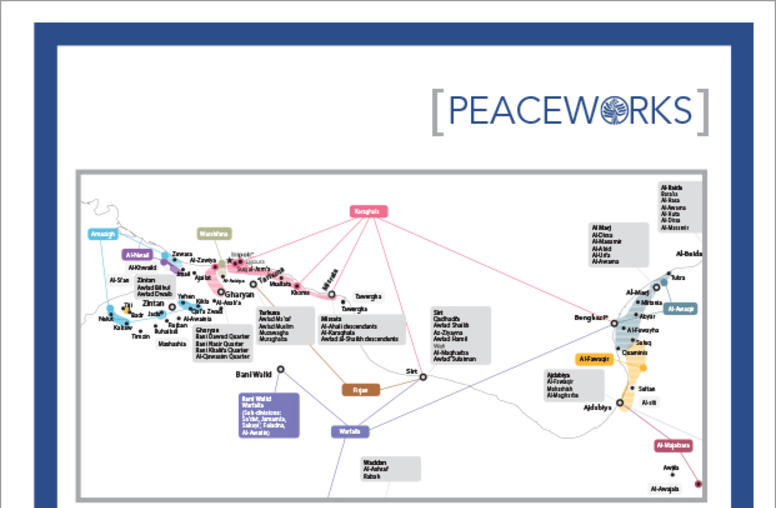
Tribe, Security, Justice and Peace in Libya Today
After the 2011 revolution in Libya that toppled Gadhafi and destroyed many state institutions, tribes and armed groups stepped in to fill the vacuum. The trend increased after the collapse of central state security in 2014. This report examines the renewed role of tribes as guarantors of social stability and providers of security and justice services in the country during the period and today.
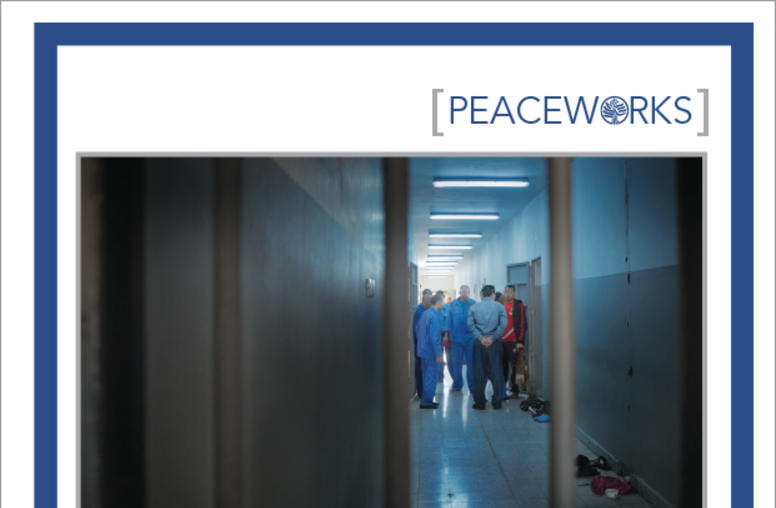
Prisons and Detention in Libya
This report examines the prison system in Libya. With the permission of the Libyan Ministry of Justice and Judicial Police, United States Institute of Peace (USIP) research teams conducted two assessments of the Libyan prison system, visiting detention facilities throughout the country in 2012 and again in 2015–16 to evaluate organizational function, security, infrastructure, and prisoner well-being. This report combines and compares the findings of the two assessments, discussing the broader...

Policing Libya: Form And Function Of Policing Since The 2011 Revolution
This report examines the different directions that policing in Libya has taken since the fall of Gadhafi in 2011. Using two cities, Tobruk and Sabha, as representative case studies, the report examines how competing and overlapping groups have assumed policing functions and traces the social and political inclinations of those groups. Acknowledging that local variation prevents countrywide generalization, the report identifies features and tendencies of the Libyan landscape that are relevant ...
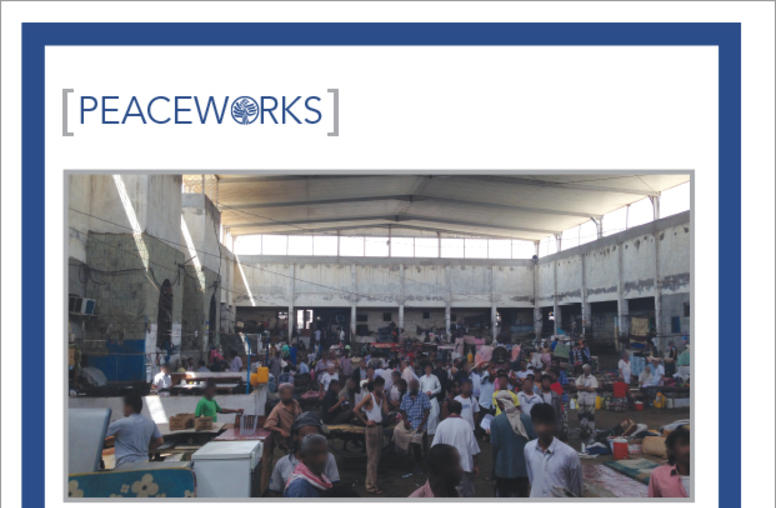
Prisons in Yemen (Arabic)
يتناول هذا التقرير نظام السجون في اليمن من منظور النظم العامة ذات الصلة. وحظيت الدراسة، التي تُعد جزءًا من مشروع الممتد على مدار ثلاث سنوات (PISU) معهد السلام الأمريكي بشأن سيادة القانون خلال الفترة الانتقالية لمرحلة ما بعد الربيع العربي في اليمن، بدعم من مكتب شؤون المخدرات وإنفاذ القوانين الدولية التابع لوزارة الخارجية الأمريكية. وبموجب تصريح من وزارة الداخلية ومصلحة السجون اليمنية، قام فريق البحث - المكون من المؤلفتين فيونا مانغان وإيريكا غاستون التابعتين لمعهد السلام الأمريكي، وأيمن الإريا...
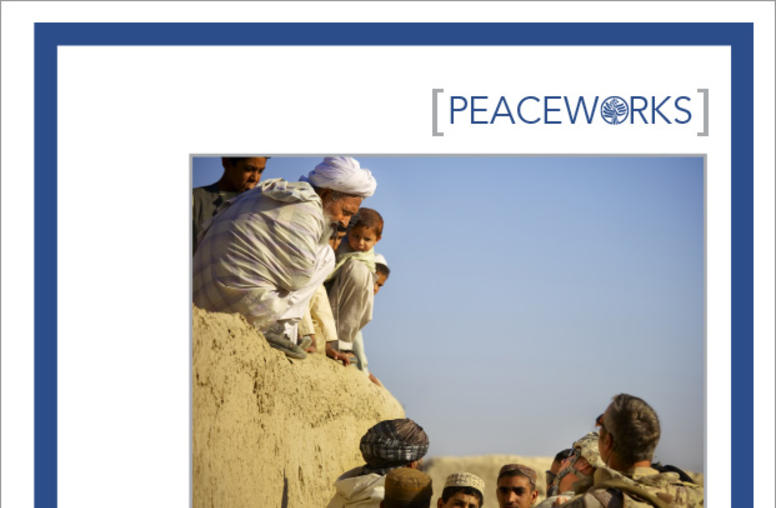
State Strengthening in Afghanistan
Since 2001, Afghanistan’s political and social landscape has changed dramatically. However, international state-strengthening interventions have arguably had mixed results. Unprecedented aid and assistance has helped the country transition to a nascent democracy, attain a greater level of security, rebuild some of its infrastructure, and open more space for civil society participation.
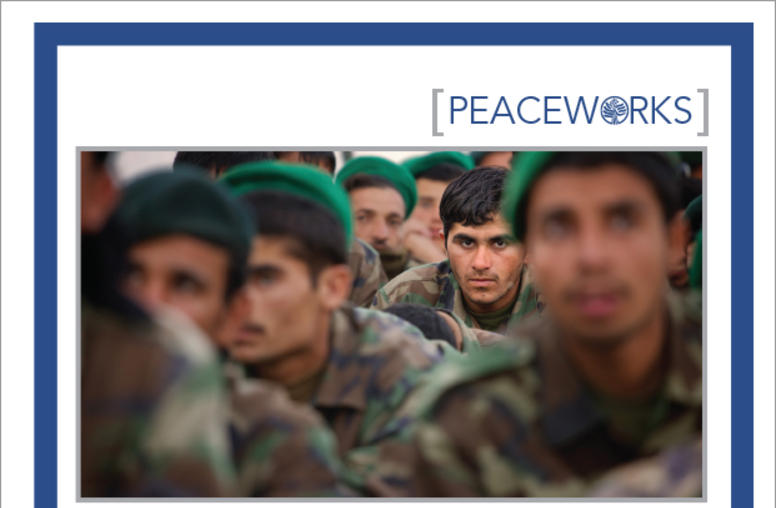
Afghanistan National Defense and Security Forces
In the past fourteen years, the Afghan National Defense and Security Forces (ANDSF) have developed into a collection of professional institutions that are both committed to their mission and highly respected. However, they still face major challenges in key areas of capacity, such as logistics, air power, and intelligence. This report assesses the ANDSF’s structure and capabilities and the conditions needed for their long-term financial and operational sustainability.
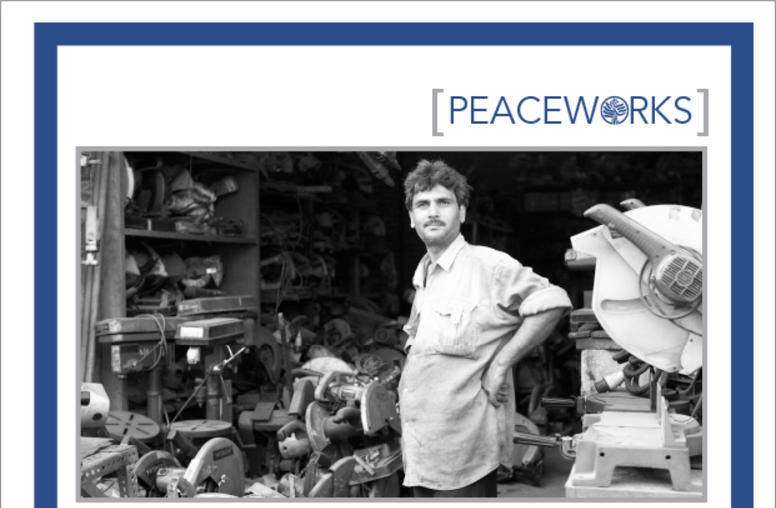
Informality in Karachi’s Land, Manufacturing and Transport Sectors
Rapid population growth, ethnicization, and a policy shift toward deregulation and privatization have contributed to a rise in informality in almost all of Karachi’s economic sectors. These factors have also diminished the state’s capacity to regulate the economy and maintain a monopoly over violence. In examining Karachi’s sizable land, manufacturing, and transport sectors, it becomes clear that informality can directly or indirectly contribute to instability, but also that instability has a...
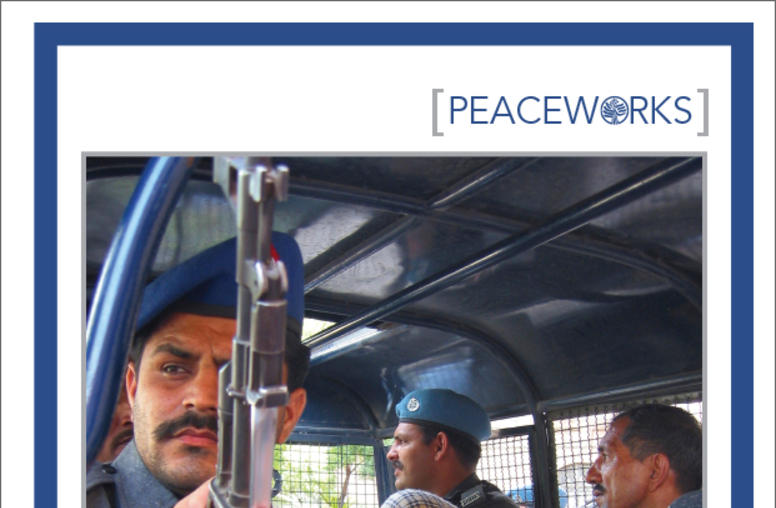
Terrorism Prosecution in Pakistan
Pakistan’s criminal justice system related to terrorism prosecution is in urgent need of reform. Conviction rates in the country’s anti-terrorism courts (ATCs) continue to be extremely low. This report highlights the numerous problems contributing to the system’s failure, including absent defense councils and witnesses, limited use of forensic evidence, poor investigative capacity, and lack of coordination between the police and prosecution. Compounding these problems is the high number of ca...
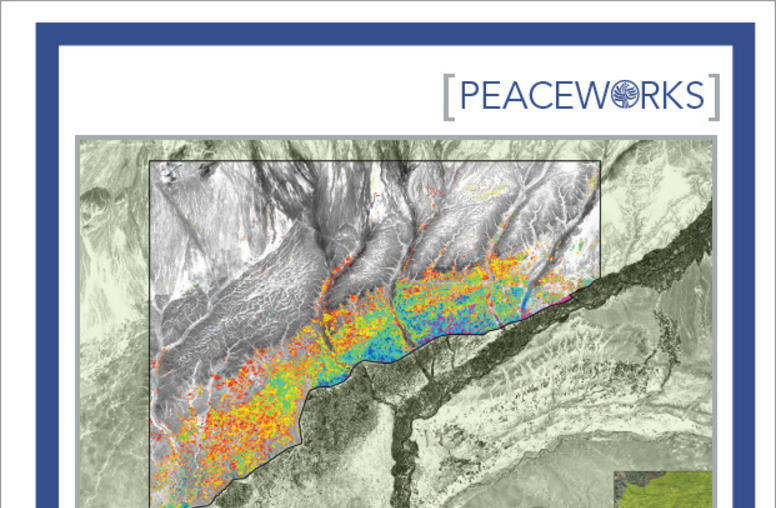
Afghanistan Post-2014
Geospatial analysis and mapping have a critical role to play in reconstruction efforts in conflict-affected regions. This report explains the core problem in typical data collection techniques: bias. Data is collected only where collection is safe and thus is not representative. To be more effective, development programs need more in-depth analysis of their reconstruction efforts, even in the most insecure spaces.